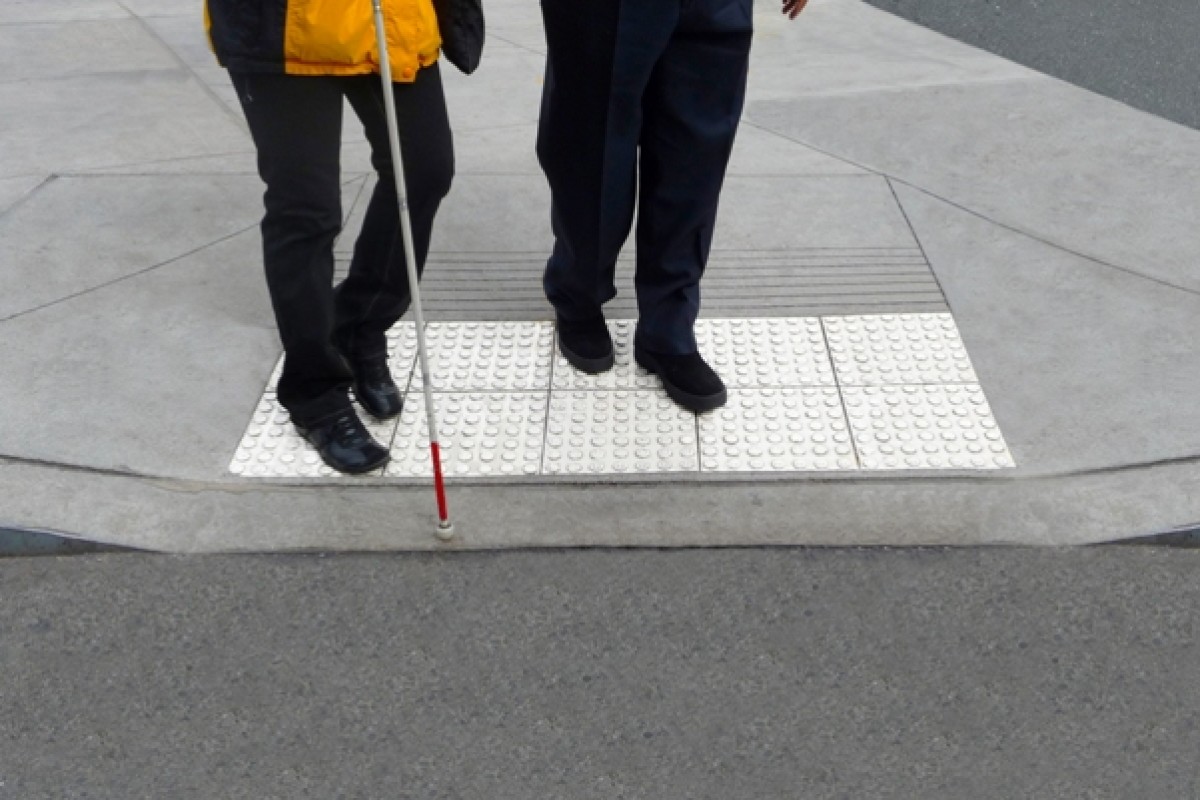By: Leah Herzog, M.Ed.
“Mom!” says my almost-adult daughter through gritted teeth as she grabbed my arm. I had stumbled off the narrow sidewalk for the 3rd (or 5th) time in 10 minutes. “Use your cane! It doesn’t help if you’re swinging it back and forth over the sidewalk! Why do you do that??!”
“Because it’s still hard for me to acknowledge, even to myself, that I’m visually impaired.”
“Impaired?” she snorts. “No, Mom. You’re blind.”
“I am not,” I huff.
“Yes. You. Are. You are basically blind,” she says with the inarguable authority of someone who sometimes knows me better than I know myself.
My visual impairment, caused by a degenerative retinal disease, has left me with no peripheral vision, extremely limited night vision, and only a sliver of central vision. I walk with a white cane and cannot navigate anywhere easily; it’s often challenging to take me places.
We lived in suburban NJ and I could never do the fun, or even routine, outings that are hallmarks of suburban life. I could never be the one to take my kids to dance lessons, drum lessons, Little League games or birthday parties. I couldn’t drive them to New York City for a day in Central Park or a museum, or to explore different neighborhoods. I could never participate in a carpool. When my friends complained about carpools, I fought back tears, and sometimes I snapped at them—“I wish I could drive carpool!”—leading to awkward silences.
Not driving brought both logistical and psychological challenges in its wake. All the driving fell on my husband, who had a full-time job. If he couldn’t drive, then either our kids couldn’t go where they wanted or needed to go, or I had to ask someone for a favor. I quickly learned whom I could, and couldn’t, ask for help.
Advanced planning was always required, as well as contingency plans. My not driving engendered constant anxiety and stress for all of us, and not-a-little guilt for me.
“Why did you feel guilty, Mom? It’s not your fault you’re blind,” my children still remind me.
I felt guilty because I knew that I wasn’t able to provide my kids with what other kids had, because my kids were the ones who had the blind mom, the mom who didn’t drive, who tripped or walked into things, who needed their helping arms, and “watch out Mom!” warnings. Children are highly sensitive to anything that makes them stick out, and a mom with a white cane is a doozy.
I have come to realize, however, that having a visually impaired mom has its benefits, and not just getting the accessible spot at the very front of the mammoth Bronx Zoo parking lot. My son and daughter see disability as a human experience. They see a whole person, regardless of disability or difference. I am sometimes moved to tears by how inordinately kind, compassionate, and empathic they are—towards me and to others–who give help with grace and gentleness. They are fiercely protective of me, share in my black humor, and never let me feel sorry for myself. I am proud that they are more resilient than many of their peers. I would like to think that navigating life with a Blind Mom on Board fosters all of these.
Diversability is doing a two-day series on parenting with a disability. In this series, we have the privilege of learning about two Diversability community members’ lives as disabled parents.


